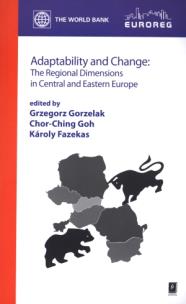- Regulamin
- Koszty dostawy
- Kontakt
- Dziś w ofercie 234 542 produkty
KSIĄŻKI
- Albumy
- Beletrystyka
- Biografie
- Dla dzieci i młodzieży
- Edukacja
- Ekonomia i biznes
- Ezoteryka
- Historia
- Informatyka
- Kalendarze
- Komiksy
- Kryminał i sensacja
- Kultura i sztuka
- Literatura faktu
- Literatura kobieca
- Literatura piękna
- Medycyna
- Nauka języków obcych
- Nauki humanistyczne
- Nauki przyrodnicze
- Nauki ścisłe
- Podręczniki
- Poradniki
- Prawo i administracja
- Przewodniki i podróże
- Psychologia
- Religia
- Sport
- Technika
- Zdrowie i uroda
ZABAWKI
- Artykuły dla niemowląt
- Bączki
- Bujaki i skoczki
- Ciągnij / pchaj
- Dla niemowlaka
- Grzechotki i gryzaki
- Karuzele i pozytywki
- Maty i centra zabaw
- Projektory i lampki
- Sortery i piramidki
- Zabawki
- Edukacyjne i kreatywne
- Figurki
- Klocki
- Lalki
- Pojazdy
- Pluszaki i maskotki
- Sport i rekreacja
- Zabawa w dom
- Zabawki drewniane
- Puzzle
- Do 200 elementów
- 201-500 elementów
- 501-1000 elementów
- Ponad 1000 elementów
- Puzzle 3D
ART. PAP
- Artykuły biurowe
- Artykuły piśmiennicze
- Bloczki i kartki samoprzylepne
- Dziurkacze
- Kalkulatory
- Nożyczki i nożyki
- Skoroszyty
- Teczki
- Wizytowniki
- Zszywacze
- Artykuły szkolne
- Akcesoria szkolne
- Modelowanie
- Notatniki i zeszyty
- Piórniki
- Plecaki i torby
- Pojemniki na śniadanie
- Pomoce naukowe
- Przybory matematyczne
- Przybory rysunkowe
- Upominki i gadżety
- Akcesoria do książek
- Artykuły balowe
- Breloki i zawieszki
- Drobiazgi, różności
- Kubki
- Oferta Świąteczna
- Papeteria, kartki i naklejki
- Skarpetki Many Mornings
- Upominki
GRY
MULTIMEDIA
- Audiobooki
- Beletrystyka
- Biografie i wspomnienia
- Dla dzieci i młodzieży
- Fantastyka
- Filozofia i religia
- Historia
- Literatura faktu i reportaż
- Poradniki
- Sensacja i kryminał
- Filmy DVD/BD
- Animowane
- Biograficzne
- Fantasy
- Horrory
- Komedie
- Romanse
- Science Fiction
- Sensacyjne / kino akcji
- Thrillery
- Muzyka CD
- Alternatywna
- Blues
- Dla dzieci
- Jazz
- Klasyczna
- Piosenka aktorska i poetycka
- Pop
- Rock
- Świąteczna i kolędy
- Akcesoria GSM
- Głośniki
- Kable i adaptery
- Klawiatury
- Myszy
- Słuchawki
PROMOCJE
ZDROWIE
LEGO

Adaptability and Change The Regional Dimensions in Central and Eastern Europe
Autor: praca zbiorowa
Wydawca:
Scholar
ISBN:
9788373835498
EAN:
9788373835498
oprawa:
Miękka
format:
15.0x24.0cm
język:
angielski
liczba stron:
408
rok wydania:
2012
(0) Sprawdź recenzje
Opis produktu
Zasady bezpieczeństwa
The recent crisis (some time ago we tended to write “of 2008-2009”, but nowadays we should refrain from displaying the ending date!) has become the most serious challenge for the Central and Eastern European countries after they had completed the process of post-socialist transformation and became the EU members. The negative impacts of recession in their most important international partners multiplied their own tensions and imbalances which – in some cases – have led to dramatic decline of the GDP and serious cuts in public spending and personal incomes.
Keeping in mind all differences between particular Central and Eastern European countries we may say that they, on the whole, have met the challenges of the crisis bravely and effectively due to still great adaptability and flexibility of both their political elites and societies. They thus may become an example for some other EU Member States which currently struggle with economic difficulties and encounter strong social protests against necessary harsh economic measures.
This book addresses the issues of the crisis and its aftermath in a more general setting, reaching beyond the recent crisis, both into the past and into the future, and also extending the discussions beyond the New Member States to countries in the greater European continent.
CENA:
34,93
zł
Cena detaliczna:
49,35 zł
29%
rabatu
Najniższa cena z ostatnich 30 dni: 35,03 zł
Produkt niedostępny
Uwaga!!!
Ten produkt jest zapowiedzią. Realizacja Twojego zamówienia ulegnie przez to wydłużeniu do czasu premiery tej pozycji. Czy chcesz dodać ten produkt do koszyka?


Wybierz wariant produktu
